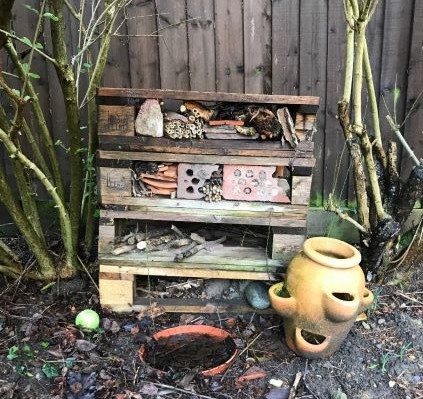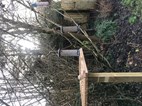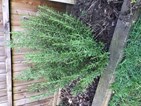Improving my environmental footprint
Wednesday 03 February 2021
My name is Samantha and I recently became a climate change volunteer. As part of this role I wanted to share some of the actions myself and my family have taken in recent months to try and improve our environmental footprint.

Last weekend we took part in the RSPB’s garden bird watch. This involved recording bird species which visited our garden within an hour. We took part in this last year too and thought about how we could improve the number of birds and species variety. We set up 5 different types of feeders and you can see a few of these in the photograph.
This year we were successful in recording many numbers of 10 species of different birds! Providing a variety of food for bird species will help to ensure that these birds survive the winter and have young in the spring. Helping species to thrive in this way improves the ecology of a local area thus having a great impact on climate change and the environment.
My family and I have moved house many times but one of the first things I do in the garden is set up an herb garden. Many herbs are easy to grow and care for and they have many benefits including:
- Free and readily available herbs for cooking whenever you want them!
- Reduction in food miles from delivery if you bought from a supermarket
- Many herb species attract pollinator such as bees and butterfly’s, providing them with food too.
You can see a picture of my rosemary here.

Rosemary loves sunshine! We also grow chives, thyme, marjoram, fennel, sage and mint. Make sure you plant mint in a pot as it can take over!
One of the things we did with the children in the autumn was build a bug hotel. This was as easy as chopping up an old pallet and filling it with bits and bobs lying around the garden, but you can buy them ready made if you wish. Lots of the little holes and crevices are all blocked up. I wonder what’s hibernating in there? Wild areas are so important for gardens. We don’t have a big garden but we just dedicate a few square metres to let the wild take over.
Sadly the UK has seen populations of pollinating insects plummet in recent decades. And the truth is we need these species to survive! Everyone can make a difference by allowing space for them and planting pollinator friendly plants in their garden. The wildlife trust has some great advice if you’d like to know more https://www.wildlifetrusts.org/actions/plant-flowers-bees-and-pollinators